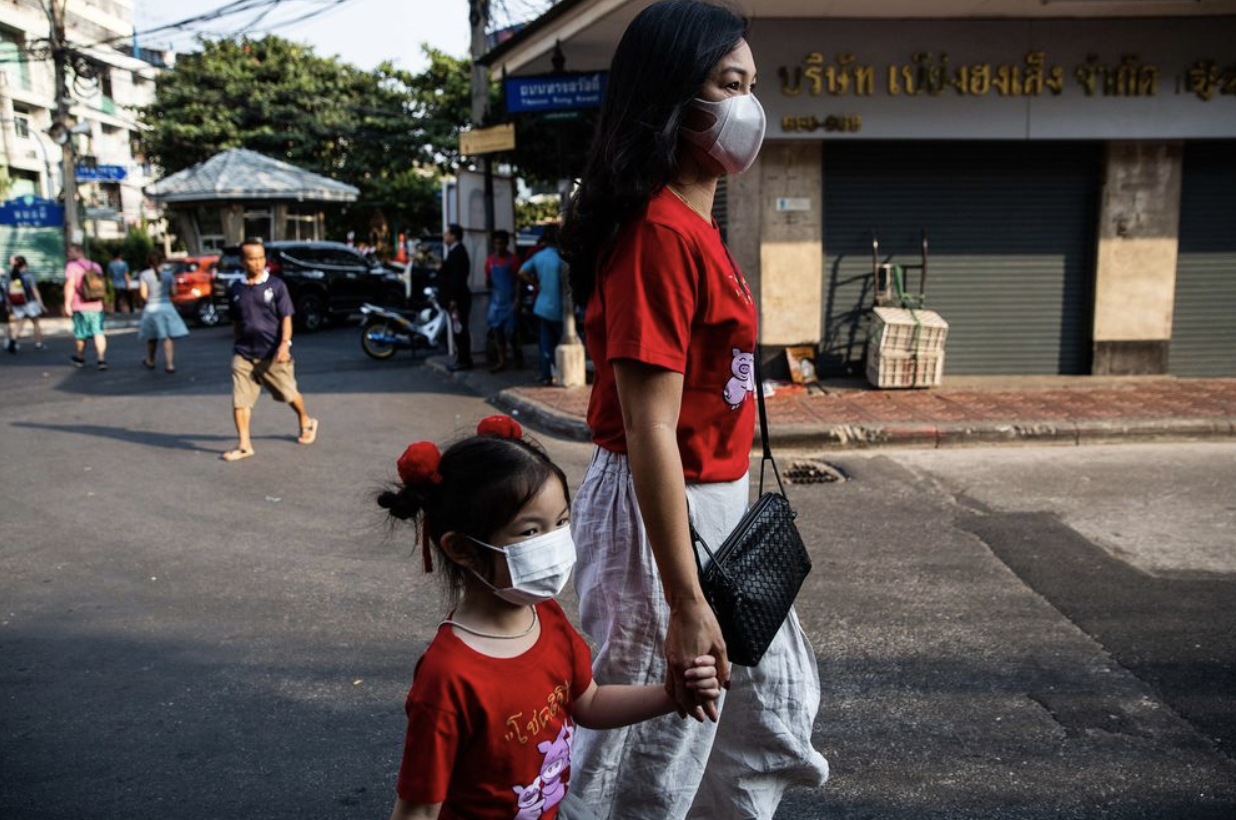LAMA AL TAHER WRITES– Thailand has been hailed as a “must” tourist destination in Asia for its unparalleled location, food, and cost effectiveness. Unfortunately, Bangkok, the country’s capital and one of the most visited destinations, is faced with a major threat– dust pollution, an environmental hazard that began early in December 2018.
While high rates of dust contaminants were recorded in 2013 and 2015, they are nothing compared to the the levels now, which just hit an all-time high in 10 years— said to be more than three times over the ‘healthy level.’.
According to environmental reports, this pollution from factories is responsible for the ‘haze,’ as it is called. The haze, besides destroying the quality of air in the region, is intensified by construction work, crop burning, exhaust fumes, coal-fired power plants, and unchecked industrial activities, among other factors. As a result, people now wear face masks on the streets to avoid severe lung infections.
Experts project tourism to suffer immensely due to this pollution. An extended haze may well flast at least a few months, resulting in canceled trips to the hotspot of Bangkok. At the moment, all tourists are being urged to wear respiratory masks as a protective measure, and this is only the first step.
Bangkok attracts five million tourists on average every month, bringing in somewhere between one to three billion Baht (approx. $94 M). So a drop in tourism could significantly impact Thailand’s GDP, and very negatively.
In addition, there are public health concerns for all. Thai authorities have closed down some schools, dispensed facial masks to locals, and broadcast warnings to those who are particularly vulnerable, such as children and the elderly. But most of these protective measures have been temporary. The Thai Prime Minister has also deployed rain-making planes to clearing the air for a while, and have enforced the use of environmental friendly diesel.
The problem of air pollution therefore is a matter of social responsibility. All parties and authority figures, not just the government, should play their part.
To improve the pollution situation, there must be oversight of construction areas. Overcrowding must be addressed. Finally, the government should consider promoting tourism in other areas of Thailand, so that tourism does not come to a standstill if Bangkok loses its allure. Bangkok is a beautiful city, but it can be hard to enjoy, and even see clearly, in a haze.


Where do you get your information? 5 million tourists monthly? I was at Don Mueang AIrport in Bangkok yesterday and it was practically empty. And, the haze/dust/pollution is country-wide – not just Bangkok.